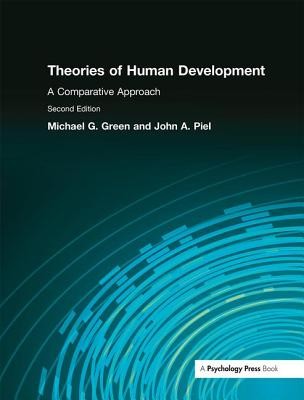
- We will send in 10–14 business days.
- Author: Michael G Green
- Publisher: Psychology Press
- ISBN-10: 0205665683
- ISBN-13: 9780205665686
- Format: 17.5 x 22.9 x 2.3 cm, minkšti viršeliai
- Language: English
- SAVE -10% with code: EXTRA
Reviews
Description
The authors have grouped the theories into three classical families which differ in their views relative to the prime motives underlying human nature. They show how theories are specific examples of more general points of view called paradigms. The theories chosen to represent the three paradigms (the Endogenous Paradigm, Exogenous Paradigm, and the Constructivist Paradigm) were selected because they met four criteria:
- importance, as judged by academic and research psychologists
- fertility, as judged by the amount of research the theory has generated
- scope, as judged by the variety of phenomena the various theories explain
- family resemblance, as judged by how well each theory represents its paradigm
The authors present the paradigm case in the lead chapter for each paradigm. This paradigm case is the best example for the paradigm. The authors explain why paradigm cases are important, and give them more detailed treatment than other theories in the same paradigm.
EXTRA 10 % discount with code: EXTRA
The promotion ends in 23d.17:52:24
The discount code is valid when purchasing from 10 €. Discounts do not stack.
- Author: Michael G Green
- Publisher: Psychology Press
- ISBN-10: 0205665683
- ISBN-13: 9780205665686
- Format: 17.5 x 22.9 x 2.3 cm, minkšti viršeliai
- Language: English English
The authors have grouped the theories into three classical families which differ in their views relative to the prime motives underlying human nature. They show how theories are specific examples of more general points of view called paradigms. The theories chosen to represent the three paradigms (the Endogenous Paradigm, Exogenous Paradigm, and the Constructivist Paradigm) were selected because they met four criteria:
- importance, as judged by academic and research psychologists
- fertility, as judged by the amount of research the theory has generated
- scope, as judged by the variety of phenomena the various theories explain
- family resemblance, as judged by how well each theory represents its paradigm
The authors present the paradigm case in the lead chapter for each paradigm. This paradigm case is the best example for the paradigm. The authors explain why paradigm cases are important, and give them more detailed treatment than other theories in the same paradigm.


Reviews